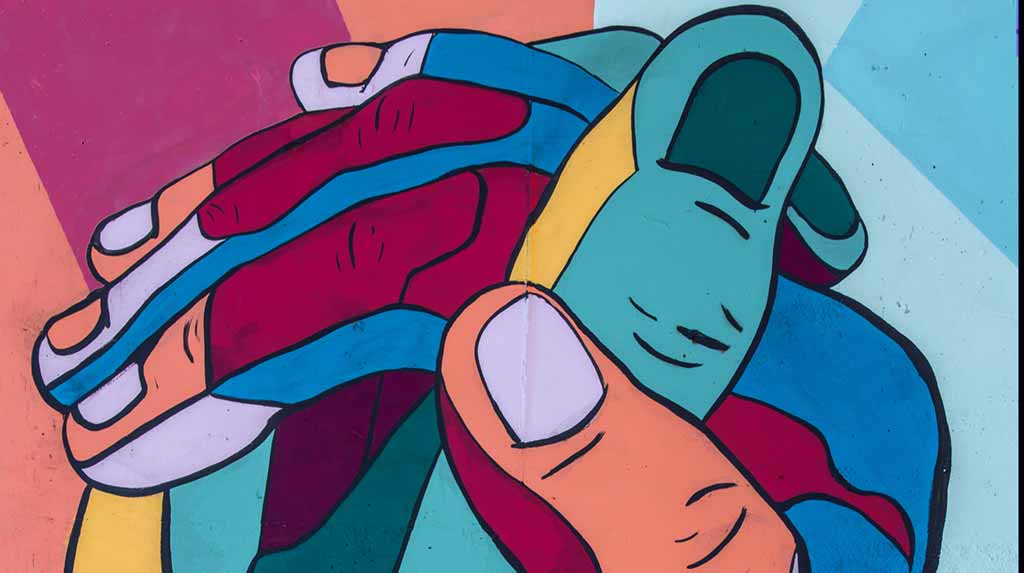When it comes to reducing prejudice and bigotry, there’s good news and bad. The bad news is: Prejudice is hardwired into our brains. We instinctively divide the world into in-groups and out-groups, favoring the former and avoiding the latter.
But that’s not the end of the story.
It turns out that neuroscience holds some keys to help us figure out how to train our brains (and influence the brains of those around us) to improve our communication and work to create communities that are kind, accepting, and healthy for everyone.
1. find common goals
Way back in 1940, Harvard social psychologist Gordon Allport developed his groundbreaking contact hypothesis theory. It shows us that though we fear the unfamiliar, being exposed to out-groups reduces our fear—especially if we share goals with the out-group. In other words, when people have common ground, they’re more likely to change their minds about who “belongs” in their group.
When it comes to sports teams, classmates, and work teams, common goals are pretty easy to identify. But in other situations, you may have to get to know a person and find out what you have in common and discover shared motives or interests. It’s not always easy to do, but making this effort is essential to reducing your prejudices and working toward inclusivity.
2. enlist the help of authority figures
The infamous Milgram experiment stunned the world. The experiment had participants who were ordered to administer an electric shock to a person they could see and hear screaming in pain. (Don’t worry. They were acting and never experienced any shocks.) The researchers expected that 0.1% would hurt their fellow humans. Instead, a jaw-dropping 65% of the participants chose to administer the highest-voltage shock.
What’s so surprising about these findings is that the research participants thought they were causing pain to the test subjects—but they did it anyway. Why? Because it’s what they were told to do. The lesson here is clear: While it’s human nature to obey authority figures, those in charge can lead us astray. So look for leaders in your community who share your anti-bigotry values, and work with them toward inclusivity.
3. seek out new kinds of media
Many studies over the years have shown us that hearing stories about out-group members can warm people over in favor of those groups. The effect is especially pronounced for children, such as when they hear stories about friends of different backgrounds or watch shows like Sesame Street that emphasize people’s similarities.
While the impact of media seems to be strongest on children, tweens, and teens, anyone can seek out underrepresented voices. There are great lists of books for kids and adults and lists of TV shows and movies as well.
4. assess your snap judgments, and give everyone some grace
Part of what makes combating prejudice so challenging is that our brains make snap judgments about the world. It’s a well-documented human survival technique. As one example, research conducted in 2001 found that people’s facial-recognition skills are better when seeing faces of their own race—and we remember faces better when they belong to our racial group.
But these snap judgments no longer serve us in the modern world. We’re not warring tribes fighting for the last piece of food. While you may not be able to fight your thoughts, you can pause to reflect on and change them. Understand that everyone’s brain has the same limitations and prejudices, and give yourself (and others) some grace.
We are all human beings, whether we have different cultures, skin colors, genders, etc. We all hurt, we all love, we all bleed. And we all agree that our world would be better with more kindness, empathy, and acceptance.
Do you have a story about how you overcame prejudice? Share it with us: @illumyinc on all platforms.
Photo by Tim Mossholder on Unsplash


